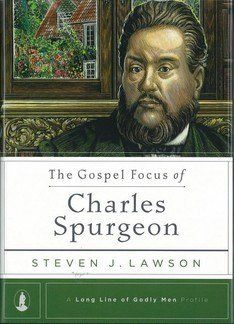Knowing God
It is almost four decades since J. I. Packer wrote his classic Knowing God. Today this theme is as important as ever, since knowing God is essential to having eternal life.
Jeremiah knew God. In his day, the Assyrian empire had collapsed and the Babylonian empire was growing. Jeremiah was ordained and sanctified to be a prophet to the nations, long before his birth. More is chronicled of his personal life than of any other prophet.
He was a type of Christ. Known as the ‘weeping prophet’, he foreshadowed the man of sorrows. Like the Lord Jesus, he was falsely accused and imprisoned, and like him he fled to Egypt and was later conspired against by his own people.
Right remedy
Jeremiah spoke about knowing God as a physician speaks of a cure. Before pronouncing the cure, he identified the malady and exposed the problem: ‘Thus says the Lord: let not the wise man glory in his wisdom, let not the mighty man glory in his might, nor let the rich man glory in his riches’ (9:23).
The medicine followed the diagnosis: ‘But let him who glories, glory in this, that he understands and knows me, that I am the Lord, exercising loving-kindness, judgement and righteousness in the earth. For in these I delight, says the Lord’ (9:24).
This sobering message was delivered to a supposedly God-fearing Judah that needed to learn that wisdom, power and riches are all inconsequential compared to understanding and knowing God. Furthermore, they are of no use when we die.
Like Judah, our only hope lies in this. George Williams, who was closely involved with evangelical revivals during the nineteenth century especially those associated with D. L. Moody, wrote: ‘Men glory in their wisdom, their power and their wealth. In a great war a nation boasts of its political sagacity, its naval and military power, and its inexhaustible financial resources.
‘But God can shatter all these, using a poor, foolish and weak nation as his instrument. How much better, therefore, to recognise, and trust, the God of love, of judgement and of righteousness; for in him are found true wisdom, power and wealth’.
Right knowledge
We need to pursue the knowledge of the Lord (Hosea 4:1, 6; 6:4). And it is simply not possible to know someone without learning about them. If you want to know a person, that relationship must grow through understanding.
In the New Testament, the apostle Paul prayed that believers would be filled with such wisdom and understanding (Ephesians 1:17; Colossians 1:9; 3:10). But we need it to be rightly applied to our hearts. Though theological knowledge is essential, mere head knowledge ‘puffs up’, even as love ‘edifies’ (1 Corinthians 8:1).
John Calvin possessed a keen intellect and compendious mind, but he issued this warning: ‘Almost all men are infected with the disease of desiring to obtain useless knowledge’. J. C. Ryle, the former Bishop of Liverpool, said, ‘The devil has more knowledge, than any of us, and is yet not better for it’.
The late John Stott, former vicar of All Souls, Langham Place, commented: ‘Knowledge is indispensable to the Christian life and service … Knowledge is given us to be used, to lead us to higher worship, greater faith, deeper holiness, better service’. Charles Spurgeon wrote: ‘If you wish to know God you must know his Word’.
In contemporary usage, ‘having a relationship with God’ can be a loose phrase. After all, the devil has an inescapable knowledge of God and a ‘relationship’ with him. However, the dynamics of that relationship and the motiv-ations the devil brings to it are polar opposites to what the Christian knows of his God.
We first come to know God by trusting in him. A. W. Tozer, who pastored Southside Alliance Church in Chicago for 30 years, said, ‘The natural man must know in order to believe; the spiritual man must believe in order to know’.
When we do this, we ‘know’ God in the full biblical sense as our Father in heaven. This is why Jesus taught his disciples: ‘In this manner, therefore, pray: Our Father in heaven, hallowed be your name’ (Matthew 6:9).
Right tests
Yet, how are we supposed to know that we do know him? In the New King James Version, the translators head the scripture passage commencing at 1 John 2:3 with the phrase, ‘The test of knowing him’. What exactly is that test?
1 John 2:3 reads: ‘Now by this we know that we know him, if we keep his commandments’. The greatest commandment is to love God with all our heart, soul, strength and mind, and our neighbour as ourselves (Matthew 22:37-39; Mark 12:30-31). So if we love Jesus, we will obey these commandments (John 14:15; 1 John 5:2-3). 1 John 4:13 confirms that we know that we are abiding in Christ and he in us, by his indwelling Spirit, for the Spirit is holy and causes us to keep his commandments.
God wants us to know all about him, to know that, in his immutable sovereignty he exercises loving-kindness, judgement and righteousness in the earth, and in these he delights.
He wants us to know that he is actively involved in human events on a grand scale, and yet simultaneously condescends to us as individuals. Unlike the false gods, he is not remote, neither is his arm too short to deliver.
That would be like the difference between an armchair athlete and an Olympics sportsman, or between a law student and a practising lawyer. He didn’t, so to speak, put the world in motion, fold his arms and say, ‘Alright, get on with it!’
Rather, Christ is both the lawgiver and the one who, as a perfect man, incarnated, obeyed and fulfilled his own law.
Right balance
Consider too, for a moment, what God would be like if he could be described in an imbalanced way by just one of his attributes; if, maybe, he was loving but not just; kind but one who overlooked wrongdoing; or, if he was a judge who failed to pardon iniquity. Who would ever dare to approach him?
But he is a perfect God. He manifests holy righteousness and holy loving-kindness. He is holy, yet through Christ’s atoning work he exercises mercy to sinners. He is perfectly rounded and balanced in his character and attributes.
The Lord desires then that we pursue the knowledge of him — ultimately, in order that we might bring glory to him, for this is why we were created (Isaiah 43:7). To know and glorify him is, and always will be, the ‘chief end of man’.
Jon Taylor

















